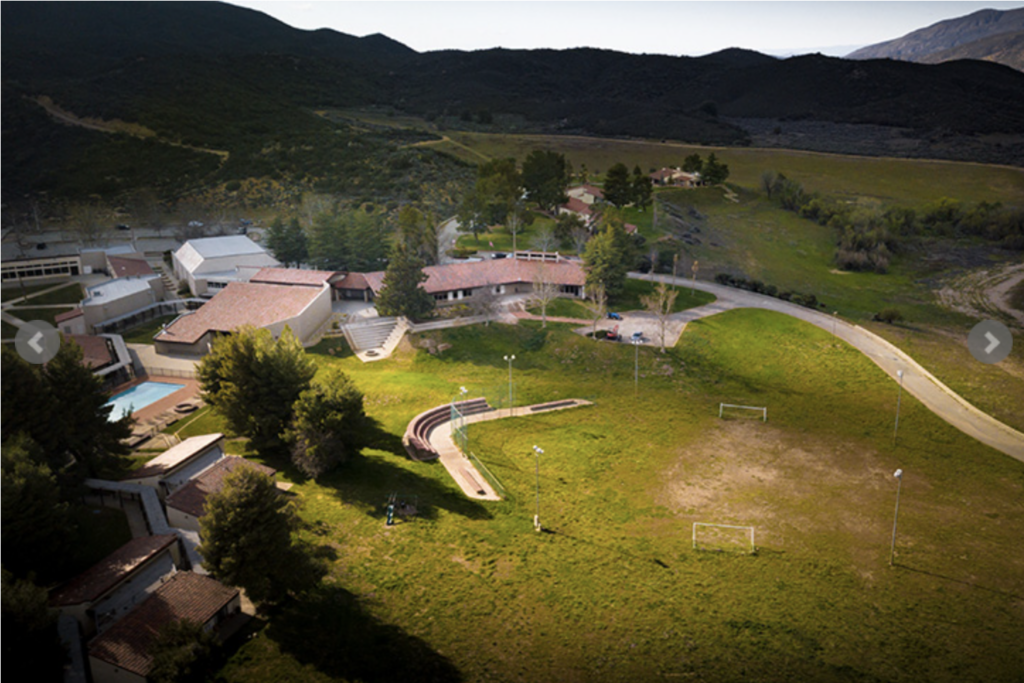In 2018, emergency dispatchers received a strange call from a remote valley in Riverside County. The caller was a 22-year-old student who said that she had been unable to leave her rural college campus for months while she was forced to work without compensation. She said she lived there with 300 others, dispatch records show, and that barbed wire surrounded the school.
The location she called from matched the address of Olivet University — a Christian Bible school set against the San Jacinto Mountains near the high desert town of Anza. Its entrance is marked by a grove of olive trees, but the more than 900-acre gated campus isn’t visible from the street; visitors must make an appointment to enter.
For years, the university and the teachings of its founder have drawn students from around the world, mostly from east Asia, seeking an academic experience rooted in Christianity. The promise of a U.S. student visa and a scholarship combined to make an unbeatable opportunity. But instead of feeling the sense of freedom they hoped to encounter in America, students described an environment where they were under near-constant surveillance and stripped of their independence.
“These allegations continue to be completely false,” Olivet President Jonathan Park said in a statement. “Every government entity that has looked into these claims of human trafficking hasn’t found anything substantiating their veracity.”
The university did not say which government entities it was referring to. When asked to clarify, Park said “the university has received no indication from any state or federal investigators that the school is even being investigated for human trafficking, let alone finding anything that has substantiated the veracity of these false human trafficking claims.”
He did not respond to specific claims that students were forced to work for little or no pay or that they could not leave campus without permission.
The suit filed in California by four students, including the one who made the emergency call, said they were forced to work at least 40 hours a week doing tasks that included manual labor and gardening, and that their only outing was a weekly shopping trip to a grocery store — chaperoned by school employees. Any other plans to leave the campus required written permission, the suit said.
“At all times while Plaintiffs lived at Olivet’s Anza campus, they were not permitted to come and go from campus unless they first received permission from an Olivet employee,” the suit alleges. “Plaintiffs were required to have a form signed by an Olivet employee authorizing them to leave the campus. Plaintiffs were required to explain where they intend to go, why they were leaving, with whom, and for how long.”
